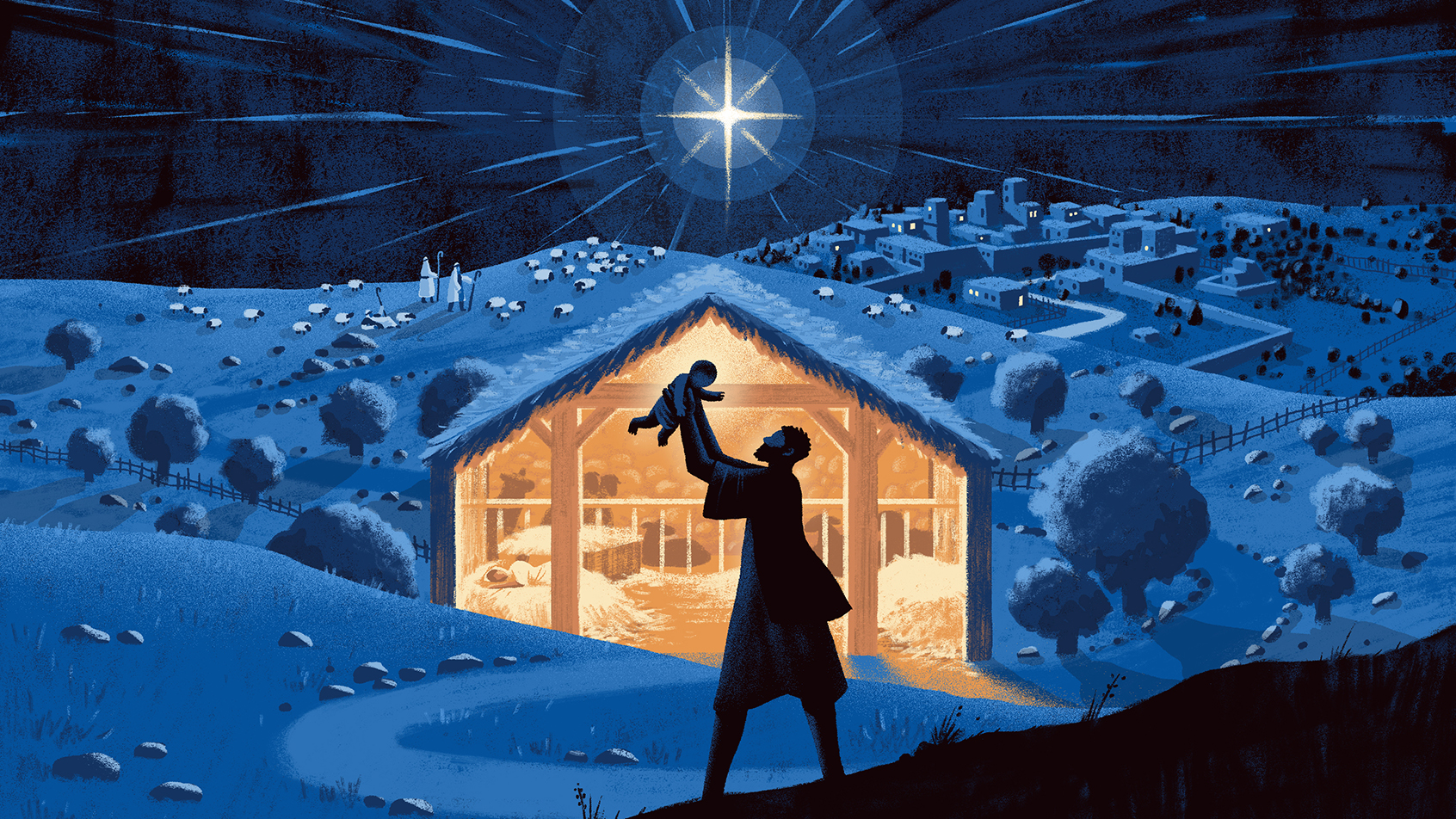The vocation of Jesus and his earthly father, Joseph, has always tempted romantic imaginations. The creators of the streaming series The Chosen, for example, depicted Jesus working as a traveling, Santa-esque toymaker and an installer of wheelchair ramps in Judean latrines, among other jobs. What exactly did Jesus do for a living? As pastor and former Bible translator Jordan Monson explores this month, experts are still sorting it out.
Every year around this time, when lawns sprout nativities and we’re asked again to place ourselves in the sandals of the holy family, we’re confronted with just how much we don’t know about Jesus’ life before he began his public ministry. In preparing this issue, our editors found more questions than answers. How much formal education did Jesus actually receive? Was the manger-born Savior as lowly, socioeconomically speaking, as our Christmas sermons insist? Or was he something closer to middle class? Why do we see so little of Joseph?
If we are honest, we’re bothered that the Gospels are so silent about Christ’s first 29 years. Save for his birth, his dedication, and a preteen instance of running off to study at the temple, the written record is blank. But we excel at filling any void of biblical authority with our own, and we’ve spun some colorful apocryphal yarns. Medieval Britons decided young Jesus must have spent time in England. In the 19th and 20th centuries, various writers on spiritual walkabout in India claimed they had evidence that Christ journeyed there during his hidden years.
More plausibly, Egyptian Christians have long observed mulids, celebrations at sites where Coptic tradition holds the holy family stopped on their flight from Herod’s infanticide. Dismiss such festivals for lack of archaeological or historical evidence, if you must. But don’t miss the faith behind them.
We don’t know why God didn’t reveal more about Christ’s youth. Probably, in part, because the extra material would distract us. And perhaps because sin has made us unable to “know fully” in this life (1 Cor. 13:12). We tasted the fruit of a certain tree in the middle of the Garden, and its branches have partially eclipsed our view of God ever since.
But God did leave something for us in the hidden portions of the narrative: an invitation to faith, to trust him more than our own ability to piece together empirical certainty. It’s an invitation to marvel, to wonder at what the Son of God was like on earth. Of course, we hold the line between fact and fantasy. But there is a power in fantasy, in what ifs, and it can draw us closer to the author of all truth if we allow it. “Blessed are those who have not seen and yet have believed” (John 20:29).
Andy Olsen is print managing editor of Christianity Today. Follow him on Twitter @AndyROlsen.










